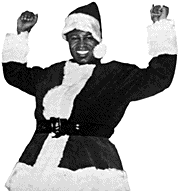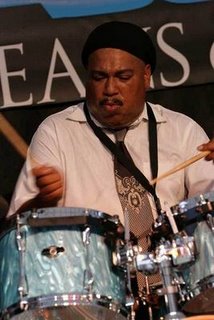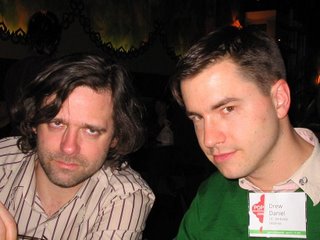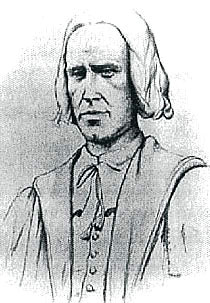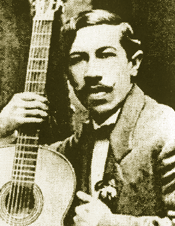Archives
- 01/01/2004 - 02/01/2004
- 02/01/2004 - 03/01/2004
- 03/01/2004 - 04/01/2004
- 04/01/2004 - 05/01/2004
- 05/01/2004 - 06/01/2004
- 06/01/2004 - 07/01/2004
- 07/01/2004 - 08/01/2004
- 08/01/2004 - 09/01/2004
- 09/01/2004 - 10/01/2004
- 10/01/2004 - 11/01/2004
- 11/01/2004 - 12/01/2004
- 12/01/2004 - 01/01/2005
- 01/01/2005 - 02/01/2005
- 02/01/2005 - 03/01/2005
- 03/01/2005 - 04/01/2005
- 04/01/2005 - 05/01/2005
- 05/01/2005 - 06/01/2005
- 06/01/2005 - 07/01/2005
- 07/01/2005 - 08/01/2005
- 08/01/2005 - 09/01/2005
- 09/01/2005 - 10/01/2005
- 10/01/2005 - 11/01/2005
- 11/01/2005 - 12/01/2005
- 12/01/2005 - 01/01/2006
- 01/01/2006 - 02/01/2006
- 02/01/2006 - 03/01/2006
- 03/01/2006 - 04/01/2006
- 04/01/2006 - 05/01/2006
- 05/01/2006 - 06/01/2006
- 06/01/2006 - 07/01/2006
- 07/01/2006 - 08/01/2006
- 08/01/2006 - 09/01/2006
- 09/01/2006 - 10/01/2006
- 10/01/2006 - 11/01/2006
- 11/01/2006 - 12/01/2006
- 12/01/2006 - 01/01/2007
- 01/01/2007 - 02/01/2007
- 02/01/2007 - 03/01/2007
- 03/01/2007 - 04/01/2007
- 04/01/2007 - 05/01/2007
- 05/01/2007 - 06/01/2007
- 06/01/2007 - 07/01/2007
- 07/01/2007 - 08/01/2007
- 08/01/2007 - 09/01/2007
- 09/01/2007 - 10/01/2007
- 10/01/2007 - 11/01/2007
- 11/01/2007 - 12/01/2007
- 12/01/2007 - 01/01/2008
- 01/01/2008 - 02/01/2008
- 02/01/2008 - 03/01/2008
- 03/01/2008 - 04/01/2008
- 04/01/2008 - 05/01/2008
- 05/01/2008 - 06/01/2008
- 06/01/2008 - 07/01/2008
- 07/01/2008 - 08/01/2008
- 08/01/2008 - 09/01/2008
- 09/01/2008 - 10/01/2008
- 11/01/2008 - 12/01/2008
- 01/01/2009 - 02/01/2009
- 04/01/2009 - 05/01/2009
- 07/01/2009 - 08/01/2009
- 09/01/2009 - 10/01/2009
- 10/01/2009 - 11/01/2009
- 11/01/2009 - 12/01/2009
- 12/01/2009 - 01/01/2010
- 03/01/2010 - 04/01/2010
Utopian Turtletop. Monsieur Croche's Bête Noire. Contact: turtletop [at] hotmail [dot] com
Sunday, December 31, 2006

2006 -- I've had a lot of good times, but on the whole it's been a rough one for me, my family, and a number of my friends. I've rarely been so happy to see the year turn over.
Here's to a good '07. Happy New Year to you & yours.
Tuesday, December 26, 2006
In the 1950s the French musician and critic Andre Hodeir (I’ve never heard his music), in his book Jazz: Its Evolution and Essence, proposed the ideas that the essence of jazz was swing, and that rhythmic evolution -- from New Orleans 2-beat style, to classic four-beat swing, to bop’s more frenetic subdivided swing -- marked jazz history more clearly than any other indicator.
In the 1980s Michael Ventura argued for the over-riding rhythmcentric nature of American pop/vernacular music, which brings all of pop into the orbit of Hodeir’s thesis, regardless of whether you want to call the whole thing jazz. As a latter-day Hodeir-ean, Jody Rosen calls James Brown, who died Christmas day, the most influential American musician of the 20th century, arguing that Brown’s 1965 record Papa’s Got a Brand New Bag invented funk, the reach of which has long been global.
I like Jody’s argument -- a lot -- but I have had hesitations on two points. First, I’m not entirely sure that Louis Armstrong’s similarly astonishing invention of swing phrasing wasn’t as influential in its day. In addition to Armstrong’s rhythmic influence, I think it was Gary Giddins who said that his timbre on trumpet influenced players across many genres including classical, and I have to say that his timbre as a vocalist continues to influence people, 80 years after his recorded debut as a singer. All talk of influence is speculative -- I’m not saying I disagree with Jody, only that I hesitate to agree.
I also hesitated to place the birth of the funk at a single record. But Jody may be right. “Papa’s Got a Brand New Bag” opened the soul beat up and slowed it down, giving it room for highly syncopated riffs, counter-riffs, and inter-riffs, particularly, from the point of view of global influence, on the bass. Earlier Motown has an equally strong beat, and is often equally “on the one” as Brown’s post-“Bag” stuff, but is less spacious and syncopated. Gospel could be as syncopated and rifferiffically dense as Brown’s funk, but the riffs were usually looser and the beat was rarely as strong and often more hopped-up. Perhaps the closest for spaciousiousness and syncopation was the early ‘60s funk-jazz of Herbie Hancock, whose great hits “Watermelon Man” and “Cantelope Island” both preceded “Bag,” and the latter of which served as the source of a hip hop hit in the ‘90s; but still, with both, Brown’s beat is harder.
It’s especially poignant the James Brown died on Christmas, because he recorded lots of classic Christmas material between 1966 and 1970, including the highly funky and sweetly tender “Santa Claus Go Straight to the Ghetto,” a nice croony cover of “Christmas in Heaven,” a “Merry Christmas Baby” that starts traditional until James goes over the top at the end with a Christmas bouquet of screams and shrieks, and many other gems, mostly inimitable original songs. I haven’t heard all of his Christmas material, but this Funky Christmas collection is aces.
* * *
In my YouTube search for sources of Brown’s funk, I found a lot of good stuff to hear (and see).
The Supremes’ very much on-the-one (but not so syncopated) great hit of 1964, “Where Did Our Love Go” (sung in German!).
In part I like Jody’s argument because it places gospel in the center of vernacular music history, where it belongs -- Brown’s style owes more to gospel than to any other source, far more than it does to blues. And so I hunted YouTube for the great singer, guitarist, and bandleader Sister Rosetta Tharpe and found this handful of astounding performances:
* Down by the Riverside with hot guitar solos from the Sister and a strong and dignified gospel choir backing her -- watch that and tell me she isn’t one of the great American lead guitarists.
* A very full solo performance of Up Above My Head, where her voice and guitar alone are as rhythmically happening (though not exactly funky) as Brown’s whole band.
* A hot festival performance of Didn’t It Rain from 1964 (the only Tharpe clip to come with a date) fronting a gospel-jazz trio, with more hot lead guitar, and a recurring drone-y section that almost -- if too briefly -- pre-figures the Velvet Underground for dissonant, driving excitement.
The gospel-influenced soul-jazz of Cannonball Adderley, Charles Mingus, and others in the late 1950s seemed a plausible source for the funk, and so I went searching for them on YouTube, and here’s a hot excerpt from a Mingus tune whose title I don’t know.
And here is an all-star jam on Canteloupe Island led by composer Herbie Hancock decades after its original 1964 release.
* * *
Condolences to James Brown’s friends and family. As soon as I learned he died, I realized something I had never articulated for myself before: He changed music. Jody’s obituary confirmed it, but my old hesitation to admit it recurred -- I don’t know why. I used to ponder the question of “most influential musician of the 20th century.” Sometimes I think: that unknown New Orleansian who invented the trap drum set. Sometimes I think: Walter Page, Count Basie’s bassist in the ‘30s who codified the walking bass, making bass indispensible in genres that previously often eschewed it, like country and bluegrass, and prefiguring the bass’s prominence in post-“Bag” popular music. Sometimes I agree with Gary Giddins and say, “Armstrong.” But maybe Jody’s right, and it’s the late Mr. Brown. Idle -- and idol -- speculation, perhaps; mostly, though, what amazing music.
Sunday, December 24, 2006

What a freaky story. I suppose all religious myths are.
Angel comes to a young woman. Young womans freaks out. Angel says, “Hey -- don’t be afraid. God favors you. You’re having his baby.”
Woman has baby, but she’s on the road with her husband, and the inns are full, so they stay in a stable with the animals, and after the baby arrives they lay him in a feed trough. You have to picture it tenderly, like any new parent.
That feed trough, that beautiful feed trough. In this religion, the baby grows up to be the Son of God, and He identifies himself with the All -- the edible world is his body, he tells us; the potable world is his blood. We are beasts in the stable, he’s our feed in the feed trough.
Hundreds of years after he dies, the Emperor takes up his worship, and somewhere along the way they decide to equate his birth with the Winter Solstice, the rebirth of the sun. The people of the north need a winter festival of lights; the church figures, might as well line it up with the celebration of the birth and the feed trough.
And in the old story the feed-trough celebration is also the moment of utopian hopes of peace and good will -- that angel comes again, only this time to some shepherds, and the shepherds freak out -- who wouldn’t? -- and the angel again has to calm them down -- in the Bible, angels spend a good quarter of their stage time telling people to stop freaking out -- and the angel tells the shepherds about the baby, and then a great crowd of the heavenly host appears and adds something about, And on Earth, Peace, and Good Will Among All People.
Peace and good will, peace and good will, peace and good will. Sounds good.
The Light Festival and Feed Trough Celebration drags a lot of people down -- it’s a powerful force, this holiday, deep expectations of familial happiness which just ain’t there for everybody, it’s also a time of consumer madness. And it’s a time of memories of irrevocable losses.
No matter where you are on the continuum -- I love Christmas, but if you hate Christmas, I’m with you, it’s a heavy trip, Christmas -- and if you aren’t Christian, it can be oppressive, and if you are, it can still be too much, too gawdy, too too many things.
In the cosmic barroom, I’ll get this round -- peace, good will, and love for the house. I got taken care of today, and I’m flush.
You can get the next one -- but only if you feel like it.
Thanks for the photo: David M. Converse
Friday, December 22, 2006
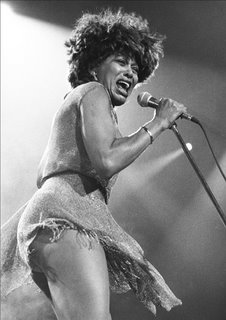
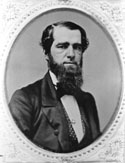
she covered his song.
* * *
People say that the McCartney-Lennon song Yesterday has been recorded more times than any other song, in more than 3,000 versions.
I'd put money on another song.
But I'll probably never know.
The song I'm thinking of fell out of copyright more than 100 years ago, so probably nobody has bothered to track it. And the vast majority of its recordings have been in "sampled" form. Or, not "sampled" in the sense of a re-contextualization of a previous recording, but in the pre-sampling sense of "quoted," almost always melodically, but sometimes the words.
If the song were under copyright, everytime someone quoted it, the trackers would track it in order to collect the money. Funny how without a financial imperative, we'll probably never know how many times it's been quoted.
I'm talking about Jingle Bells, the 1857 hit written by robber baron J. Pierpont Morgan's uncle, James Pierpont (pictured, above right).
I heard Joni Mitchell's lovely song "River" on the radio the other day, with its Christmas setting and its melancholy quotation of "Jingle Bells" that opens and closes it -- the most melancholy quotation of the song I know. Mitchell's quotation of "Jingle Bells" is the most trad-Christmas aspect of her record, because hundreds upon hundreds -- I'm guessing thousands -- of pop Christmas recordings quote it.
Think of the classic doo-wop recording of "White Christmas" by the Drifters. At the end of the song, out of nowhere, for no reason, they quickly sing, "Jingle bells, jingle bells, jingle all the way -- ooh." Charlie Parker's burning version of the same song, in the middle of his sax solo, he quickly quotes the same bit of melody.
The classic version of "Merry Christmas, Baby," by Charles Brown -- he quotes the same bit at the beginning of his piano solo.
The wildest quote I know is sung by Tina Turner (pictured, above center), back when she was part of "Ike and . . . " Their great rocked-up version of "Merry Christmas, Baby" begins with a titanic, out-of-tempo intro of, simply, "Jingle all the way!"
I'm not even going to attempt a list right now -- though if you feel like adding examples in the comments, please do.
It's a great catchy song, nothing to do with Christmas, except it is set in the wintry north, and Christmas iconography is northern and wintry in our culture. Everybody in North America knows the song, excepting recent immigrants, new-born babies, and mentally disabled people. But who among us has ridden in a one-horse open sleigh? If you have, please do tell!
"Jingle all the way!" What a great command! Not just part of the way -- alllll the way. Jingle! It's a 19th century version of "Bring tha noise!" Jubilation, celebration -- sleigh bells are noisy, no pitch, pure excitement.
The most heart-warming version I know is the one from the 1950s by the Singing Dogs. So cheerful! (You can hear it here.) December 1998, my friends John de Roo, Jake London, Dan Tierney, and I played an all-Christmas set at a bar. John & I sang the Singing Dogs' arrangement of "Jingle Bells," John D. singing the treble dog, and me singing the baritone dog. It was a splendid, deeply satisfying thing to do -- I recommend trying it yourself. I spoke with John the other night, and he had just performed a Singing Dogs' version of it live on the college radio station in Tucson, where he lives. He and two friends each sang a chorus, and then a whole big group of people all barked together. He said he'd send me a recording of it -- I can't wait.
I just read the song's whole lyric -- I only knew two verses, but it has four, and the last has a great, great, magnificent line, Go it while you’re young.
Go it! Go it!
And Merry Season to you.
* * *
People say that the McCartney-Lennon song Yesterday has been recorded more times than any other song, in more than 3,000 versions.
I'd put money on another song.
But I'll probably never know.
The song I'm thinking of fell out of copyright more than 100 years ago, so probably nobody has bothered to track it. And the vast majority of its recordings have been in "sampled" form. Or, not "sampled" in the sense of a re-contextualization of a previous recording, but in the pre-sampling sense of "quoted," almost always melodically, but sometimes the words.
If the song were under copyright, everytime someone quoted it, the trackers would track it in order to collect the money. Funny how without a financial imperative, we'll probably never know how many times it's been quoted.
I'm talking about Jingle Bells, the 1857 hit written by robber baron J. Pierpont Morgan's uncle, James Pierpont (pictured, above right).
I heard Joni Mitchell's lovely song "River" on the radio the other day, with its Christmas setting and its melancholy quotation of "Jingle Bells" that opens and closes it -- the most melancholy quotation of the song I know. Mitchell's quotation of "Jingle Bells" is the most trad-Christmas aspect of her record, because hundreds upon hundreds -- I'm guessing thousands -- of pop Christmas recordings quote it.
Think of the classic doo-wop recording of "White Christmas" by the Drifters. At the end of the song, out of nowhere, for no reason, they quickly sing, "Jingle bells, jingle bells, jingle all the way -- ooh." Charlie Parker's burning version of the same song, in the middle of his sax solo, he quickly quotes the same bit of melody.
The classic version of "Merry Christmas, Baby," by Charles Brown -- he quotes the same bit at the beginning of his piano solo.
The wildest quote I know is sung by Tina Turner (pictured, above center), back when she was part of "Ike and . . . " Their great rocked-up version of "Merry Christmas, Baby" begins with a titanic, out-of-tempo intro of, simply, "Jingle all the way!"
I'm not even going to attempt a list right now -- though if you feel like adding examples in the comments, please do.
It's a great catchy song, nothing to do with Christmas, except it is set in the wintry north, and Christmas iconography is northern and wintry in our culture. Everybody in North America knows the song, excepting recent immigrants, new-born babies, and mentally disabled people. But who among us has ridden in a one-horse open sleigh? If you have, please do tell!
"Jingle all the way!" What a great command! Not just part of the way -- alllll the way. Jingle! It's a 19th century version of "Bring tha noise!" Jubilation, celebration -- sleigh bells are noisy, no pitch, pure excitement.
The most heart-warming version I know is the one from the 1950s by the Singing Dogs. So cheerful! (You can hear it here.) December 1998, my friends John de Roo, Jake London, Dan Tierney, and I played an all-Christmas set at a bar. John & I sang the Singing Dogs' arrangement of "Jingle Bells," John D. singing the treble dog, and me singing the baritone dog. It was a splendid, deeply satisfying thing to do -- I recommend trying it yourself. I spoke with John the other night, and he had just performed a Singing Dogs' version of it live on the college radio station in Tucson, where he lives. He and two friends each sang a chorus, and then a whole big group of people all barked together. He said he'd send me a recording of it -- I can't wait.
I just read the song's whole lyric -- I only knew two verses, but it has four, and the last has a great, great, magnificent line, Go it while you’re young.
Go it! Go it!
And Merry Season to you.
Thursday, December 21, 2006
At the annual Winter Solstice Party of friends of ours tonight, I bumped into my old comrade Geov Parrish, a political activist and commentator who left a weekly political column at Seattle Weekly after the New Times bought it. Seeing him reminded me that I hadn’t linked to his excellent piece on why he left the Weekly, which he published in the free ‘zine, Eat The State!, which he edits and which I believe he founded. Geov’s piece -- ai yai yai. They really wanted him out, but they wanted to be in a position of not being seen as having fired people, so they gave him assignments they knew he wouldn’t take. They lacked the dignity to fire people outright. But what’s business got to do with dignity, right?
Geov told me that the Weekly doesn’t appear to be doing too well. He said that their page count in their pre-Christmas issue was down to 80 pages this year from 130 last year -- not a good sign. I rarely pick it up any more, though I’m glad that they dropped “Ask the Mexican.” They replaced it with the ‘80s-style snarky, anti-local-culture, pro-homogenization column “Ask an Uptight Seattleite.”
As Geov said, “Not my problem any more.” Although he was a regular, I’m pretty sure he was free-lance, so he probably didn’t have health insurance anyway.
Robert Christgau, whom the New Times did fire from the Village Voice, did have insurance.
In New Orleans last week, I bumped into a colleague who had recently gotten his lay-off notice from a giant housing nonprofit.
We talked. He and his wife are 60, and his wife wants to retire, but now she can’t until they’re 65. Because he’ll be working as a consultant now, and they need her access to company-subsidized health insurance. For them to buy health insurance on the open market would cost them $1,500 a month -- $18,000 a year.
Mind-boggling. Insane.
My 60-year-old colleague and I went to hear the Preservation Hall Jazz Band at Preservation Hall together. As I mentioned last week, the Hall, which for decades had been open 7 nights a week, is now open only Thursday through Sunday. But the music is still fantastic.
When I read in the paper that drummer Shannon Powell would be leading the band Thursday night, I was stoked -- I had seen him two years ago and been mightily impressed.
Powell’s got the jazz combination of delicacy and spontaneity and guts, hitting one beat so softly and the next so loud, mixing it up, playing the musical music musically -- a great drummer. He was fronting a neo-trad 7-piece New Orleans band -- 2 brass, one reed, piano, banjo, bass, and drums. The brass were the trad trumpet & trombone. Instead of the usual clarinet, the reed was a tenor sax. The banjo was a 6-string guitar-tuned banjo, and the player played it with the jazz guitar chords, but the single-note sound was banjo all the way.
This fourth trip to Preservation Hall wasn’t as transcendent for me as the first two times I’d been there (including the first time I’d seen him), but better than the 3rd. Besides Powell, the band sported another extraordinary musician, pianist David Torkanowsky, who could swing it sweet, stride it steady, play loud & wild or quiet & delicately filigreed. And Torkanowsky was a showman -- in the middle of one solo he stood up, did a downward glissando the length of the piano with his left hand, followed by another with his right hand as he started to spin, and concluded with a 3rd gliss from his left hand as he completed his 360. Sounded -- and looked -- great.
Torkanowsky led a trio version of “Silent Night” swung so sweetly and delicately and funkily, with a ‘50s funk-jazz style bass riff anchoring it -- truly beautiful. Torkanowsky also sang Hoagy Carmichael’s great song “New Orleans.” As he led the band in the intro, I called to the drummer, “Hey Shannon, you gonna sing this one?” Shannon would have sung it great -- but he placed his finger to his lips, Shhh, and Torkanowsky sung it, slightly off-key and poignantly.
Powell is a joyous presence onstage, cracking jokes, loving the musical felicities of his bandmates, playing that great music. On the traditional New Orleans song “Little Liza Jane” he played a wonderfully funky melodic tambourine solo, with bass drum & high hat accompaniment -- really great. He sang a funny-funky-mournful “My Bucket’s Got a Hole in It” (next line: “and I can’t buy no more milk”).
The rest of the band was fine; trumpeter and singer Leon Brown had some fine moments, and a young trombonist who sat in on a few songs blew my ears back with his rhythmic verve and dramatic dynamics, but I didn’t catch his name.
My colleague and I sat on the floor and spoke of health insurance. He had been in the Peace Corps in the Phillippines. A sweet guy; his wife is disappointed that she won’t be able to retire soon, and he’s disappointed too. What a crazy society.
New Orleans ain’t coming back to full population strength for at least a couple decades, but the tourist sector is mostly intact, just under-utilized. If you like the music and can afford a trip, I recommend it. They can use the business. You’ll hear great stuff that you won’t be able to hear anywhere else in the world.
Wednesday, December 20, 2006
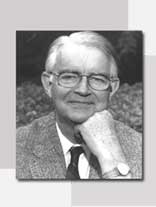 By chance I read that composer Daniel Pinkham passed away the other day. I have never heard any of his music, but I sang one of his pieces in high school.
By chance I read that composer Daniel Pinkham passed away the other day. I have never heard any of his music, but I sang one of his pieces in high school.From 9th grade through 12th I sang in the church high school choir. For big occasions we would join forces with the adult choir. Easter Sunday in 11th or 12th grade, more than 25 years ago, the choir director decided to yank the chains of the twice-a-year church-goers and do a long modernist piece -- by Daniel Pinkham. I don't remember the name, but it was in 3 movements, for choir, electronic tape, and tympani. (I see it must have been Alleluia, Acclamation and Carol.) The 2nd movement was tympani and tape only. At least part of the piece was aleatory, with the instruction to sing any note as long as it was different than your neighbor's, and then go up and down from there.
A great memorable joy to sing it, and to hear the electronic tape and tympani -- noisy! -- and to join in the director's punk rock glee.
Condolences to his family and friends, and thanks for the music.
* * * * * * * * * * *

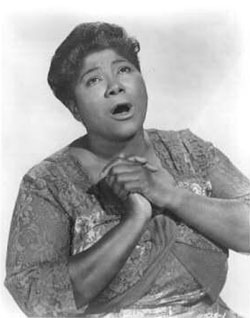 The remix of Mahalia Jackson's recording of "Silent Night" by 46bliss (pictured at far right) has a holy feel. The mythic intersection of techno-derived styles and church music: They meet at the dissolution of the Romantic Western ego, the first in the service of the groove and the dance, the 2nd in the service of God.
The remix of Mahalia Jackson's recording of "Silent Night" by 46bliss (pictured at far right) has a holy feel. The mythic intersection of techno-derived styles and church music: They meet at the dissolution of the Romantic Western ego, the first in the service of the groove and the dance, the 2nd in the service of God. (The 46bliss remix of Mahalia's Night is on Christmas Remixed 2, which sports a lot of other tasty trax.)
* * * * * * * * * * *

from the age of 4 till I was 10 we lived on Cherry Street. a fireman lived across the street from us. his name was Mr. Shelley. one summer day we had a block party and Mr. Shelley's band played. I think he played keyboard but I'm not sure. They played "Rockin' Robin." This would have been the late '60s or possibly early '70s. I don't remember anything else they played.
How I loved that "tweet tweet tweet."
Tuesday, December 19, 2006
 I heard "The Chipmunk Song (Christmas Don't Be Late)" today and wondered at the bizarre myth (endorsed by Eno) that recording artists didn't begin to think about the recording studio as a self-standing medium distinct from the performance of music until the psychedelic '60s.
I heard "The Chipmunk Song (Christmas Don't Be Late)" today and wondered at the bizarre myth (endorsed by Eno) that recording artists didn't begin to think about the recording studio as a self-standing medium distinct from the performance of music until the psychedelic '60s.Long before Ross Bagdasarian (a/k/a David Seville) had his # 1 Hit in 1958 and sold millions of records, people were manipulating tapes and overdubbing and playing with alternative balances that were impossible to duplicate live, all the way back in the '20s.

the utopia of shopping arises from the fantasy of boundless leisure, the idea that i will have a plenitude of time in which to read all these books, hear all this music -- or, if you're so inclined, have endless occasion to wear all these clothes.
the utopia of Christmas shopping arises from the fantasy of making somebody else happy -- and sometimes, the fantasy comes true.
i enjoy the stressed out merry jostle and hubbub of the Season.
(thanks Thomas Nast for the picture of Santa.)
Sunday, December 17, 2006
[I wrote this a week and a half ago but when I went to post, my internet connection had gone kaput. By the time the connection got reconnected, I was in the rush to get ready to go to New Orleans, and I didn't feel like posting it then. Here it is now.]
I was looking for a picture of my friend Carl to adorn a post I had started to write in response to a post of his, and I found one taken by music critic J. Niimi at the Seattle Pop Conference in 2005; and then, curious, I looked at the current page of Niimi’s blog and found a story about a Chicago musician who set himself on fire about a month ago to protest America’s invasion and occupation of Iraq.
A flood of thoughts.
Of course -- our brilliant self-suppressing network of independent Pravdas did not report this news. Leonid Brezhnev could only have wept with envy -- the bastards. If it had been a protest against abortion we would have heard about it, if it had happened in a country on which ours does not look favorably, against a policy of that country, we would have heard about it. But a protest against the foolish foppish dilettante war -- nope, the news ain't saying a word.
How gruesome that the man felt such despair -- and yet, despair is rational.
The war -- the war -- the war -- what a waste, what folly -- and what’s the point? Read the news, every day, hundreds die, killed by mad Iraqi warriors warring against each other, and the U.S. Army is helpless to stop it. Helpless. Read the stories -- it’s as if the U.S. isn’t even there, except Americans keep getting killed too -- the U.S. is there to help a helpless, powerless, un-supported, illegitimate-by-definition government? In the midst of bloody chaos. Facilitated by the toppling of a bloody dictator. I don’t get it. It’s crazy. America has no power to stop the civil war. The “government” we are protecting has no power. To stay in such circumstances -- what can one say? Throw one’s hands up in exasperated despair? Invoke the great detached put-down of the ‘90s and say, gigantically, “Whatever”? Reason has no chance in a street-fight with madness. Madness knows no rules.
In the self-burning man’s farewell letter, he reproached himself for not murdering Donald Rumsfeld when he passed him on the street one day. The stupidity of paranoid despair -- killing Rumsfeld would have solved nothing. Nothing.
Death is a given, and we as a species feel compelled to give it and and give it and give it. We as a country, as a people. Believe me, I’m sympathetic to the fantasy of opting out. I simply don’t believe it’s possible.
The man who burned himself to death -- he pisses me off. Because it was an act of helplessness and powerlessness, and it reminds me of how helpless and powerless I am. He wounded my vanity. And he did so with cruelty and malice. Burning yourself to death in front of rush hour traffic -- there is something hateful about it. Hateful toward himself, for sure, and hateful toward the commuters.
But nothing compared to the hatred of the war-makers. The outcome of the Iraq War is unfathomable right now. My guess is that it will end up a radically repressive Shia Islamist state, after much bloodshed. And I don't like these people. Yeah, sure, who cares whom I like or don't like -- whatever, that's childishness. And that's the point. I'm just like everybody else. Xenophobic and dogmatic. I like people who are like me. I think everybody wants to be like me -- middle-class and bourgie -- and people who don't want to be like that are incomprehensible to me, particularly when they are unpleasantly dogmatic about it. I'm dogmatic about this avoidance of dogma, this pluralistic American freedom blah blah blah that I know and love -- really love -- and I'm not really xenophobic as long as people don't want to kill me, and most people don't, but it only takes a minority of violent freaks to ruin the whole party, right? And they keep doing it, over and over and over -- and, truth be told -- I know it, you know it too -- America's whole history of position as Top Dog (at least on the Consumer Pile) is predicated on bloody repression of an impoverished Other -- first the Indians and slaves, then the local working classes, and finally the current regime of exporting the repression to impoverished producers of cheap consumer goods, yummy chocolate, cheap clothes & electronics, etcetera to the point of nausea, you know the story. And so I can pretend that I'm a peaceful gentle creature yearning to sing in harmony with my brethren and sistren -- and it's not just pretending -- but I ain't lifting a finger to keep Uncle Sam's client despots from stepping on the throat of some trade unionist in some commodity-producing 3rd World country (the myth of the Information Economy makes me want to break windows -- as if the computer on which I'm typing has no relationship to any factory anywhere!) -- well, OK, maybe I'll lift a finger, write a stern letter to a newspaper or Raise Consciousness Through Blogging, or Call My Congressman (and he said, quote) -- and in fact my Congressman ain't terrible, not at all, Baghdad Jim McDermott, MD, the single-payer health-care advocate -- but will things ever get better?
Bloody awful war. A man burned himself to death. Pity his despair.
Pity the dead and their survivors.
* * * *
[Here is the original post I was writing when I got sidetracked and began ranting.]
Carl led a grand audience-participation event the other night, and the discussion over at his blog rhymes zingily with a book I picked up last night for a few bucks, a British edition of Music, Society, Education by Christopher Small, whom I’ve wanted to read ever since reading this inspiring essay on Small by Robert Christgau -- but paradoxically I haven’t been in a hurry, because everything in Christgau’s essay seemed immediately familiar to me -- that startling & wonderful sensation of lurking murky thoughts suddenly made clear & articulate for me by somebody else, in this case Small via Christgau -- especially the idea of Music as Process, or, in Small’s coinage, “musicking.” I’ve started reading the book. It’s reminding me.
Simply because the artist sets his own goals and works with his whole self -- reason, intuition, the most ruthless self-criticism and realistic assessment of a situation, freely, without external compulsion and with love -- art is a model for what work could be were it freely and lovingly undertaken rather than, as it is for most today, forced, monotonous, and boring. -- Music, Society, Education, p. 5
The image of art as microcosm and catalyst. The theater company I worked with back in Ann Arbor and Chicago, Theater Oobleck, which is alive and kicking, is known for working without a director and for not charging admission but simply asking for a donation. In theater, this decision is not merely ideological but also intensely pragmatic. In our student days, before we codified the decision to work without a director, I wrote four short plays. For the first two, I acted in them and decided to not have a director, simply because I trusted nobody to direct them -- and the “direction” was fine. My friend Leigh Evans, who acted with me in my second play, directed the third one, and she did a wonderful job, bringing a visual sense that enhanced the play and had nothing to do with my ideas, as well as doing a bang-up job with the actors. The fourth one, I directed, and I was lousy. Lesson: With a director, you have at best a 50/50 shot for good and inspired direction (and it’s actually less than that, in my limited experience as an actor with other companies); without a director, you’ll be fine.
Oobleck’s manifesto gets at the reasons for this, but, to put it for myself: Without a director, the actor is forced onto his or her own deepest passions -- the actor owns the part directly. I wrote a full-length musical after we decided on “No More Directors,” and the directing was fine.
I wrote a speaking-and-singing chorus for that play, and I wanted to extend the ideology: I opened membership in the chorus to anybody who wanted to be in it. We ended up, if I recall, with 6 members. (This was in 1987, 19 and a half years ago, so memory is fading.) We started out with an additional member, a friend of a friend of somebody who argued with everybody a lot and had no flair for theater. His name was Rev, and he was older than the rest of us. He ended up dropping out of the play, to everybody’s relief, but despite his argumentativeness he was cheerful, not mean-spirited, and I liked him; and before he dropped out he brought in photocopies of a mind-blowing essay he had come across, the imagery of which he thought pertained to the play. The essay was Hear That Long Snake Moan, a mythic meditation on rock and roll’s roots in New Orleans vodun via jazz and gospel and blues by Michael Ventura, who republished it in his terrific collection Shadow Dancing in the U.S.A..
Back then in my social circle in Ann Arbor a man I will call R. was the only person I ever met who apparently lived outside of the money system. An eccentric tenants-rights attorney let him live for free in his house. R. had no occupation other than dumpter diving and surreptitiously tending a large garden on somebody’s property outside of town, apparently with tacit permission but without paying rent. He regularly distributed the bountry from his dumpster diving to group houses of his acquaintance, including the one I lived in, which was aptly named Sphincter House. R. didn’t speak much, and always softly in a low voice; he was active in radical student politics even though he was no longer a student; the rumor about him was that he had been a brilliant physics student who had friend his mind with LSD. I remember him making vegetable juices in a friend’s house one day, declining to add lettuce to the mix because lettuce was nothing more than “glorified water,” said in his quiet, resonant low voice.
Talking to people one night outside the theater after a performance of my show, somebody asked if I was content with people’s performances despite their having been no director. I said something to the effect that while I did not agree with every acting choice by every actor, I was more than content because I trusted that the whole came out better than it would have with a director, because people are happier and more productive when working without possibility of coercion. R. had been listening and he stepped over and without a word gave me a hug.
It felt like a butterfly landing in my hand.
Years later in Seattle, I became reacquainted with some ex-Ann-Arborites who had seen the musical, and one of them quoted one of the chorus’s lines to me. I didn’t recognize it. I don’t think I wrote it -- someone in the chorus had, embellishing their part, making it better, owning it.
Sometimes I miss theater.
* * * * *
[And here is a follow-up I wrote a week and a half ago to the top part of this post. It doesn't really follow. But it's something I've been trying to think about sometimes, and hope to think about more.]
Nationalism is the conundrum of our time. Even poor Americans and radical Americans and unemployed and underemployed Americans benefit from Uncle Sam’s position as Top Dog on the Consumer Pile. When the capitalists openly state as their position, “The job of nations is to control labor markets, and nations must keep fairly firm borders for labor and completely open borders for solvent consumers and investors,” the jig is up. The ideology has no legitimacy. “Except it works.” For rich nations. That’s not good enough. It’s a naked statement of raw power.
Economic history shows our human wackiness. When money was “based on” gold, the discovery of gold in the early 16th century in South America and the late 19th century in Alaska provoked eras of rapidly increased prosperity. Think about that for a moment. The gold did not increase natural resource capacity or human capacity for work or human ingenuity for solving problems or human desire for things, and yet its presence facilitated the “unlocking” of these forces. Meaning: Gold had an actual religious power over people’s economic lives.
Now that we no longer base our money on gold, we base it on our expectation of future solvency. Oddly, this complete abstraction is more rational. We as a society authorize lenders to loan more money than they actually have if they judge that the borrower will have the ability to pay the money back in the future. Bankers and credit card companies and auto dealers base this judgment on their understanding of the borrower’s future economic prospects, which they judge according to the borrower’s economic history. One of the calculations a lender makes is that millions of other lenders will be simultaneously placing identical bets, lending more money than they actually have to people on the expectation that the borrowers will be able to pay the loans back. To me, this makes a whale of a lot more sense than waiting for a navy’s expeditionary force to conquer a less-well-armed group of people and steal their gold. Because the gold has nothing to do with a society’s ability to produce wealth, unless the society superstitiously agrees that it does.
We need a large-scale anthropological economics. An anthropological economics would assume that all wealth is collectively held and that societies distribute the wealth according to collective agreement. Societies across the world now enforce those agreements by coercion, and in fact many parties to the agreements do not agree to them at all, but that does not mean that this will always be the case.
That bit I said above about everybody wanting to be bourgie -- I really believe it, not about everybody, but about the vast majority of people. Almost everybody wants economic security and comfort and control, and most people, who are able, are willing to work for it. The almost-universal desire for personal economic comfort and control points to the observation that eliminating private property is a counter-majoritarian proposal -- it runs counter to what nearly everybody wants. So basing a politics on that proposal requires either, 1) persuasive powers beyond anybody’s present imagining, or 2) the prospect of a violence more massive than that which underwrites our present economic system. The first possibility is delusional and the second is monstrous.
But our economic system of winner-take-all is monstrous as well. Our economy is nearly global; with some small-scale and remote self-sufficient subsistence exceptions, our anthropological economics should be global as well. And an anthropological economics will observe that wealth is based on 3 sources:
1) natural resources -- soil, seed, metals, weather, energy sources, plant and animal wealth;
2) human ingenuity in solving problems and exploiting and transforming resources and making things and processes for making more things;
3) human labor, including mental labor.
Society as whole has a large claim on the first source. We need to do a lot better in sharing the whole pie. Nationalism is the great conundrum because millions of people from the small-pie nations want to come to the large-pie nations for more pie. From the perspective of anthrolopological economics, the large-pie citizens close their borders in order to horde more pie. This is not a tenable long-range arrangement. Nor is it moral, nor is it internally self-consistent with the ideology and practice of global capital. The current system strikes me as amoral nonsense, yet I don’t want open borders either, because I want to horde my piece of the pie.
Saturday, December 16, 2006
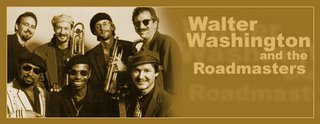 Washington is front and center; I'm pretty sure that that's Mr. Dog left front.
Washington is front and center; I'm pretty sure that that's Mr. Dog left front.This picture must be several years old.
* * *
Friday night while walking on Decatur Street in the French Quarter of New Orleans, I looked in a small club and saw the incredible drummer I had seen two nights before playing with Walter Washington, whom I mentioned in Friday’s post. This time he was sitting in with two strictly competent blues-rock bar-banders, again playing for no cover, to a smaller audience. At the set break I went and introduced myself, declared my admiration for his drumming, and learned his name: Junkyard Dog, or JYD.
Via Google, I learn that Washington and Junkyard Dog have been playing together since at least 1988, and that Washington is 63 years old. In August 1990 Peter Watrous wrote up Washington and JYD -- real name Wilbert Arnold -- in the New York Times and aptly said of Mr. Dog,
Helping the festivities was Mr. Washington's drummer, Wilbert (Junkyard Dog) Arnold, an extraordinary musician who cruised along with the effortless improvisation that seems found most often in Southern musicians. Mr. Arnold, who has been a regular member of Mr. Washington's band, keeps a constant monologue going with his drums, improvising within the form of a tune, embroidering and accenting the music and stimulating the dancers.
And just a month ago, Dan Phillips of Home of the Groove called Junkyard Dog “one of New Orleans’ best drummers.”
Playing for tips with a pick-up band. He was friendly, though I had trouble understanding him, due to his missing teeth, rapid speech, and New Orleans accent. He spoke about having to give up the pimping business when he got married.
* * *
Got back home this morning. Great to be back. Massive windstorm Thursday night knocked a huge percentage of the region out of power, though not our house. Four people died, three from falling trees, one by drowning when a flash flood trapped her in her basement. Supposed to get down to 29 degrees F tonight. Good luck to everybody struggling to stay warm.
More on New Orleans later.
Friday, December 15, 2006
I haven't been able to follow all of the great suggestions for New Orleans entertainment from the unknown commenter to the last post. By the time I read his suggestion I had already caught ReBirth Brass Band at Maple Leaf Bar -- I had heard recordings of them and was psyched to learn they would be playing their regular Tuesday night gig -- which is listed in a late '90s edition of Lonely Planet guide to Louisiana, Mississippi, and Tennessee that my beloved spouse and I bought when we were here 7 years ago.
I caught a cab to catch the 11:00 pm start and got there maybe a little late, but they were late going on. Jam packed crowd, lots of tourists and conferees like me, though nobody from my conference -- I met a bunch of environmentalists. It occurred to me that most of the people in my industry -- nonprofit housing -- got into it by accident -- like I did -- whereas most people working on the environment probably planned to do that, which shows greater initiative. Take that off-the-cuff analysis for what it's worth -- not much.
I had heard ReBirth and liked them but don't know them well, so I couldn't tell you about personnnel stability, though I'm pretty sure the tuba player and the snare drummer are longtime members. They're a 7-piece parade band -- two trumpets, two trombones, two sax, tuba, snare drum, bass drum, and cowbell. And they rock it sock it take it to the stage.
High high high energy riff-blues-wailing jazz-and-roll; the crowd was rocking-in-place, jammed up tight together. I hadn't danced that much in a long time, and at times I got into that borderline-ecstatic state of feeling that not only can I dance all the polyrhythms, dynamic changes, harmonic surprises, and drama of the music, but I can also dance all the other dancers' dances too. It's an illusory afflatus that feels great -- I'm a good dancer but not that good; but it doesn't matter. And I wasn't the only one having a good time -- no way.
Most of the tunes are original, and the ones with vocals revolve around the theme of partying and dancing -- we come to party, our feet can't fail us now, we're going to do our thing. Interesting covers were set-closing calypso number by Sonny Rollins -- I think it was "St. Thomas," but I'm not sure -- a nice re-thinking of the sweet '80s soul hit "Casanova" by the late lamented Levert, with bawdy requests to "take off your shirt" interpolated into the sensitive-soul-man lyrics. I thought it was great, though I didn't comply (nor did I see anybody else comply); I don't think the band was addressing me in any case, unless maybe by way of imagining themselves as speaking for me by proxy. A mostly young crowd, mostly white, lots of college students (I'm guessing) -- it seemed most people didn't know the song. When they later played "Let's Get It On" by Marvin Gaye, though -- everybody knew that one. It's made it into the white-culture nostalgia circuit, so the young white hipsters know it.
The next night a work obligation prevented me from catching the free concert at St. Louis Cathedral that my unknown benefactor recommended, as well as a subsequent free concert the next night at the same place. I did, however, take the commenter's suggestion and caught Walter Washington at a club called d.b.a. And it was, again, wonderful. So, to the commenter -- Thanks!
A friend of mine went to University of New Orleans, and in addition to recommending ReBirth at the Maple Leaf, she touted Frenchman Street as a good place to catch music just east of the French Quarter, which, as it happens, is where d.b.a. is located. I checked out the Paul Motian tribute show two doors from d.b.a. that the unknown commenter suggested, and it sounded like a fine '60s-style jazz trio, but the cover was $15, so I passed on going in.
Walter Washington charged no cover. A Wednesday night regular gig, apparently, Washington sings and plays guitar in a style that could be described as midway between Gatemouth Brown and B. B. King, a blues-soul idiom, fronting a tenor saxist, a bassist, and a drummer. Washington and his un-announced sidemen looked to be about 50 -- maybe slightly younger -- and they were hot. Washington, the bassist, and saxist were not a whole lot different than bar-band musicians practically anywhere. Better in degree than almost any in any other town, but not in kind.
The drummer, though, was out of this world. I swear to Satchmo, they don't let non-brilliant drummers onstage in this town. Tuesday night, the snare drummer and cowbell player in ReBirth had sent me into polyrhythmic ecstasies, deploying rhythmic tension like a classical composer deploys dissonance, in tension-and-release patterns that drive people wild. Washington's drummer did it all by himself, SO much better a drummer than any I'd ever heard in a club in Seattle that it was . . . I struggle to name the emotion . . . awe-inspiring, amazing, depressing, embarrassing. The only drummer I've seen in Seattle who is remotely close probably makes 6 figures as REM's touring drummer -- Bill Rieflin, who sometimes plays in clubs in side projects with Peter Buck. Rieflin is great -- a witty, joyous drummer, highly musical and melodic, great sense of dynamics, great groove. This guy . . . blew away anything I've ever heard Rieflin do. All of Rieflin's qualities, with, in addition, crazy virtuosity and occasionally wild abandon. A powefully-built, fit-looking, 50-ish looking man who is missing his front teeth. If he's making middle class dollars, or better, he's bold in his rejection of the middle class dogma to Replace Missing Teeth. My guess is -- he's just getting by. Playing for tips.
One of the regulars -- a 50-ish looking bohemian-looking African American man who was getting smashed at the bar -- requested Marvin Gaye's other great "On" anthem -- "What's Going On," and, while Washington is a nice blues-soul singer, he ain't no Marvin, but who is? It still sounded great. Where gritty soul blues and smooth jazz meet.
Before Washington's set started, I wandered into a used bookstore and overheard a 60-ish white bohemian talking to the employee. He talked about having overheard tourists talking about what to do, and he said, "I told them to come to Frenchman Street. Pre-K, I wouldn't have said anything, because we had enough tourists, but now we need them."
Pre-K. Katrina. Last night during a break in the work-related activities I tagged along with four people I had just met. We hired a van-taxi for an hour for a tour of devastated areas. The first many blocks, it reminded me of Detroit in the mid-'80s, large areas of severe and total urban abandonment. But then it went on. And on. And on and on and on. For miles, destroyed buildings -- houses, apartment complexes, malls, million-dollar homes, on and on and on. Our cabbie took us to his destroyed home.
This being a housing conference, I had heard people talk casually of Katrina victims having come to their town, having found work and a place to live, and not wanting to go back. There's nothing to go back to -- no homes, no neighborhoods, no jobs; and, I've heard (though I haven't read up on it), uncleaned toxic aftermath from the flood. Some of the neighborhoods, maybe one house is inhabited in a 5-square-block area. I wouldn't want to live there.
I kept thinking of the days after the flood, when the government laid siege to the people of New Orleans, not allowing supplies in, and not letting people out. It galls and sickens me that our country has mostly forgotten it, and it has almost never been called by its proper name -- the War of the Government Against the People of New Orleans. I'm not talking about the flood itself, I'm talking about the aftermath. The government wouldn't let supplies in or people out. That's an act of war. That's laying siege.
Totally disoriented and whelmed with sorrow, I left the Katrina tour to meet my co-workers for dinner, and our boss took us out to a lovely, expensive restaurant in the French Quarter, about a block from Preservation Hall, where I had been planning to go afterward anyway, to catch the great Shannon Powell, whom I had seen there two years ago. (When I get home tomorrow I'll add the link to the post from December 2004.) Two years ago, pre-K, Preservation Hall was open 7 days a week. Now it's 4, Thursday through Sunday. Smaller crowds too. The music was still fantastic; Powell was the third brilliant drummer I'd seen in three nights. But I've been typing enough for now, and don't feel like getting into it, except to say it was a really weird evening, the Katrina tour, the fancy dinner, the fabulous music, then wandering back to the nice hotel watching 60-ish white tourists stagger drunkenly through the largely sleazy French Quarter. I was ready to go home, but I had another day of work here, and now that work's done unexpectedly early my flight isn't until tomorrow. I'll find something to do, no doubt, but I'd rather be home. (Not least because I'd be playing a show with my good friend Jake tonight if I were -- if you read this, and are in Seattle -- Jake and a dozen or two other singer-guitarists will be doing a song or 2 each at the Sunset Tavern tonight.)
Good luck to the people of New Orleans, the people who stayed or came back as well as the members of the diaspora.
I caught a cab to catch the 11:00 pm start and got there maybe a little late, but they were late going on. Jam packed crowd, lots of tourists and conferees like me, though nobody from my conference -- I met a bunch of environmentalists. It occurred to me that most of the people in my industry -- nonprofit housing -- got into it by accident -- like I did -- whereas most people working on the environment probably planned to do that, which shows greater initiative. Take that off-the-cuff analysis for what it's worth -- not much.
I had heard ReBirth and liked them but don't know them well, so I couldn't tell you about personnnel stability, though I'm pretty sure the tuba player and the snare drummer are longtime members. They're a 7-piece parade band -- two trumpets, two trombones, two sax, tuba, snare drum, bass drum, and cowbell. And they rock it sock it take it to the stage.
High high high energy riff-blues-wailing jazz-and-roll; the crowd was rocking-in-place, jammed up tight together. I hadn't danced that much in a long time, and at times I got into that borderline-ecstatic state of feeling that not only can I dance all the polyrhythms, dynamic changes, harmonic surprises, and drama of the music, but I can also dance all the other dancers' dances too. It's an illusory afflatus that feels great -- I'm a good dancer but not that good; but it doesn't matter. And I wasn't the only one having a good time -- no way.
Most of the tunes are original, and the ones with vocals revolve around the theme of partying and dancing -- we come to party, our feet can't fail us now, we're going to do our thing. Interesting covers were set-closing calypso number by Sonny Rollins -- I think it was "St. Thomas," but I'm not sure -- a nice re-thinking of the sweet '80s soul hit "Casanova" by the late lamented Levert, with bawdy requests to "take off your shirt" interpolated into the sensitive-soul-man lyrics. I thought it was great, though I didn't comply (nor did I see anybody else comply); I don't think the band was addressing me in any case, unless maybe by way of imagining themselves as speaking for me by proxy. A mostly young crowd, mostly white, lots of college students (I'm guessing) -- it seemed most people didn't know the song. When they later played "Let's Get It On" by Marvin Gaye, though -- everybody knew that one. It's made it into the white-culture nostalgia circuit, so the young white hipsters know it.
The next night a work obligation prevented me from catching the free concert at St. Louis Cathedral that my unknown benefactor recommended, as well as a subsequent free concert the next night at the same place. I did, however, take the commenter's suggestion and caught Walter Washington at a club called d.b.a. And it was, again, wonderful. So, to the commenter -- Thanks!
A friend of mine went to University of New Orleans, and in addition to recommending ReBirth at the Maple Leaf, she touted Frenchman Street as a good place to catch music just east of the French Quarter, which, as it happens, is where d.b.a. is located. I checked out the Paul Motian tribute show two doors from d.b.a. that the unknown commenter suggested, and it sounded like a fine '60s-style jazz trio, but the cover was $15, so I passed on going in.
Walter Washington charged no cover. A Wednesday night regular gig, apparently, Washington sings and plays guitar in a style that could be described as midway between Gatemouth Brown and B. B. King, a blues-soul idiom, fronting a tenor saxist, a bassist, and a drummer. Washington and his un-announced sidemen looked to be about 50 -- maybe slightly younger -- and they were hot. Washington, the bassist, and saxist were not a whole lot different than bar-band musicians practically anywhere. Better in degree than almost any in any other town, but not in kind.
The drummer, though, was out of this world. I swear to Satchmo, they don't let non-brilliant drummers onstage in this town. Tuesday night, the snare drummer and cowbell player in ReBirth had sent me into polyrhythmic ecstasies, deploying rhythmic tension like a classical composer deploys dissonance, in tension-and-release patterns that drive people wild. Washington's drummer did it all by himself, SO much better a drummer than any I'd ever heard in a club in Seattle that it was . . . I struggle to name the emotion . . . awe-inspiring, amazing, depressing, embarrassing. The only drummer I've seen in Seattle who is remotely close probably makes 6 figures as REM's touring drummer -- Bill Rieflin, who sometimes plays in clubs in side projects with Peter Buck. Rieflin is great -- a witty, joyous drummer, highly musical and melodic, great sense of dynamics, great groove. This guy . . . blew away anything I've ever heard Rieflin do. All of Rieflin's qualities, with, in addition, crazy virtuosity and occasionally wild abandon. A powefully-built, fit-looking, 50-ish looking man who is missing his front teeth. If he's making middle class dollars, or better, he's bold in his rejection of the middle class dogma to Replace Missing Teeth. My guess is -- he's just getting by. Playing for tips.
One of the regulars -- a 50-ish looking bohemian-looking African American man who was getting smashed at the bar -- requested Marvin Gaye's other great "On" anthem -- "What's Going On," and, while Washington is a nice blues-soul singer, he ain't no Marvin, but who is? It still sounded great. Where gritty soul blues and smooth jazz meet.
Before Washington's set started, I wandered into a used bookstore and overheard a 60-ish white bohemian talking to the employee. He talked about having overheard tourists talking about what to do, and he said, "I told them to come to Frenchman Street. Pre-K, I wouldn't have said anything, because we had enough tourists, but now we need them."
Pre-K. Katrina. Last night during a break in the work-related activities I tagged along with four people I had just met. We hired a van-taxi for an hour for a tour of devastated areas. The first many blocks, it reminded me of Detroit in the mid-'80s, large areas of severe and total urban abandonment. But then it went on. And on. And on and on and on. For miles, destroyed buildings -- houses, apartment complexes, malls, million-dollar homes, on and on and on. Our cabbie took us to his destroyed home.
This being a housing conference, I had heard people talk casually of Katrina victims having come to their town, having found work and a place to live, and not wanting to go back. There's nothing to go back to -- no homes, no neighborhoods, no jobs; and, I've heard (though I haven't read up on it), uncleaned toxic aftermath from the flood. Some of the neighborhoods, maybe one house is inhabited in a 5-square-block area. I wouldn't want to live there.
I kept thinking of the days after the flood, when the government laid siege to the people of New Orleans, not allowing supplies in, and not letting people out. It galls and sickens me that our country has mostly forgotten it, and it has almost never been called by its proper name -- the War of the Government Against the People of New Orleans. I'm not talking about the flood itself, I'm talking about the aftermath. The government wouldn't let supplies in or people out. That's an act of war. That's laying siege.
Totally disoriented and whelmed with sorrow, I left the Katrina tour to meet my co-workers for dinner, and our boss took us out to a lovely, expensive restaurant in the French Quarter, about a block from Preservation Hall, where I had been planning to go afterward anyway, to catch the great Shannon Powell, whom I had seen there two years ago. (When I get home tomorrow I'll add the link to the post from December 2004.) Two years ago, pre-K, Preservation Hall was open 7 days a week. Now it's 4, Thursday through Sunday. Smaller crowds too. The music was still fantastic; Powell was the third brilliant drummer I'd seen in three nights. But I've been typing enough for now, and don't feel like getting into it, except to say it was a really weird evening, the Katrina tour, the fancy dinner, the fabulous music, then wandering back to the nice hotel watching 60-ish white tourists stagger drunkenly through the largely sleazy French Quarter. I was ready to go home, but I had another day of work here, and now that work's done unexpectedly early my flight isn't until tomorrow. I'll find something to do, no doubt, but I'd rather be home. (Not least because I'd be playing a show with my good friend Jake tonight if I were -- if you read this, and are in Seattle -- Jake and a dozen or two other singer-guitarists will be doing a song or 2 each at the Sunset Tavern tonight.)
Good luck to the people of New Orleans, the people who stayed or came back as well as the members of the diaspora.
Tuesday, December 12, 2006
Took the red-eye to New Orleans Sunday night to get to a week-long training for work Monday morning. Sad to be away from my beloved spouse and child for a week; planning to console myself by catching music. Strolled Bourbon Street after dinner last night; less populated than I remember and sleazier-seeming too. Heard cover bands covering "Proud Mary" (fake Mississippi River song -- sounded fake & bored too); "Sweet Home Alabama" (more exciting Southern Pride, if that's your thing -- super-catchy, & a better riff, and a less-bored band); and the Janis version of "Piece of My Heart," which didn't take a piece of mine (though I love Janis).
In the hotel, my doom -- cable! Caught the tail-end of "Wizard of Oz," and during Dorothy's chant of "There's no place like home," the strains of the great 19th-century hit "Home, Home Sweet Home" played in the underscoring, which I'd never noticed before -- Dorothy's line comes from the song.
More -- and better, hopefully -- music tonight, is the plan. Cheers --
In the hotel, my doom -- cable! Caught the tail-end of "Wizard of Oz," and during Dorothy's chant of "There's no place like home," the strains of the great 19th-century hit "Home, Home Sweet Home" played in the underscoring, which I'd never noticed before -- Dorothy's line comes from the song.
More -- and better, hopefully -- music tonight, is the plan. Cheers --
Sunday, December 10, 2006
Pop Conference proposals are due on Friday, but I probably will not have much computer access for the next week, so here, with little hope of being accepted, is mine:
Title: “Born Free” as the Sound of the ‘60s; or, How the Generation Gap Names the Lacuna in Pop History, Which Has Never Been Written, As Such
Tony Bennett and Chuck Berry were born the same year as Miles Davis, Allen Ginsberg, and John Coltrane -- 1926. Bennett had his last Top 40 hit in 1965; Berry’s last was in 1964, until he hit again with two fluke live hits in ‘73 and ‘74.
Barbra Streisand was born in 1942, the same as Paul McCartney and Brian Wilson. Streisand hit the Top 40 twice in the ‘60s singing in the pre-rock popular style; her radio career took a leap up in 1970 when she started covering material by rock-influenced writers like Laura Nyro.
So-called “pop” history has always told a tale of how rock-and-roll came and knocked the older popular style off its pedestal, but the record shows that pre-rock-style pop never went away. Far from leaving the stage, practitioners of the older style responded to the ‘60s freedom call with such Top 40 hymns to unbridled individuality as “Moon River” (#11, twice in 1961, for Jerry Butler, then for Henry Mancini); “Born Free” (#7, 1966, Roger Williams); “The Impossible Dream (The Quest)” (#35, 1966, Jack Jones); “I’ve Gotta Be Me” (#11, 1969, Sammy Davis Jr.); and “My Way” (#27, 1969, Frank Sinatra; and #22, 1977, Elvis Presley).
“Pop” history deserves its scare-quotes because it has always been partisan and partial, turning a deaf ear to the contemporaneous survival of the older style. Of what biases about age and class might this absence speak? Does “pop” history teach that only the young and anti-middle-class were truly born free?
* * * * *
I dashed this off tonight and sent it in, and now as I expected new wrinkles to the question are revealing themselves, such as: Could the pre-rock writers' invocation of unbridled individuality be a conservative response to the more communitarian calls for freedom of the soul and rock writers? And -- my deprecation of the lack of "pop" history is decidedly under-nuanced, but what the heck, polemic is entertaining, right? Like I said -- "little hope of being accepted" -- and polishing it probably would not have improved its chances appreciably.
As the old folks like to say, keep on rockin' in the free world -- and cheers --
Saturday, December 09, 2006
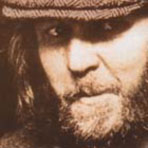
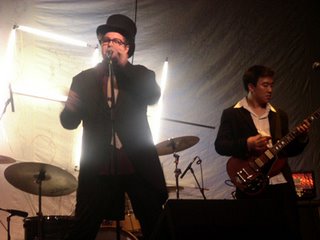
Nelson Sang Nilsson
Last night at Town Hall in Seattle, Sean Nelson of the band Harvey Danger (with whom he is pictured at left) fronted a 13-piece band and 11 backing singers in a long set of Harry Nilsson covers. I'd seen Sean sing the Who's Tommy all the way through a year and a half ago, so I was stoked to see this -- the man has pipes and passion. And I love Nilsson, and my beloved spouse likes him, so we went.
Magnificent show. Sean's vocal chops are more suited to hard rock than to Nilsson's inimitable blend of tender and delicate beauty, huge range, and raging wailing, but he sang with passion and held the stage and fronted a terrific band playing beautiful arrangements by the keyboardist, whose name I didn't catch -- Sean held up, he didn't disappoint. Three violins (who got drowned out in the louder numbers but sounded beautiful in the quiet tunes), 5 wind instruments, keyboards, bass, drums, electric guitar, and acoustic guitar. Plus three excellent female background singers, and a choir of 8 kids looking to be about 7 years old joining the group on a bunch of numbers. Nelson was a funny and emotional and warm frontman, as I expected he would be, and many many moments in the show raised goosebumps. He called Nilsson's song "Maybe," which Streisand covered (I've never heard the original), "the ultimate ultimate Nilsson song," which pleased me -- (it was stuck in my head one day several weeks ago, and I hadn't remembered then that it was a Nilsson song).
I didn't know a lot of the songs and was glad to hear them -- a widely diverse range of lovely melodic and lyrically observant and witty songs, a unique sort of cabaret rock -- Nilsson's writing continually wowed.
Sean reminded us that last night was the anniversary of Nilsson's collaborator John Lennon's murder, and the encore closed with "A Day in the Life," which was thrilling to hear live. Lennon's song isn't as melodically glorious as many of Nilsson's, but it packs a deep emotional power, deeper than anything we'd heard all night, and hearing the orchestra feel its way through the semi-improvised glissandos was -- the word insists upon repetition -- thrilling. It struck me that Sean's voice was better matched for Lennon's than for Nilsson's. The drummer -- whose name I don't recall now -- played Ringo's drum fills -- and the backing singers joined Sean in the wordless section preceding the last verse -- really beautiful.
It was a labor of love and skill and effort, earning its two standing ovations -- a wonderful show.
(Photo of Nelson by Pipesman.)
Thursday, December 07, 2006

Now brandy for breakfast may be a distressing thought, but whisky for dinner is, I think, an absolute horror. -- Charles O'Connell, 1947
O'Connell was a conductor who ran the classical division of Victor Records for many years, and then later Columbia. I'd never heard of him, but I picked up his 1947 memoir of record producing, The Other Side of the Record, because it looked like fizzy gossip, and it is. He had to drink whisky for dinner with one of his record label's star conductors, Serge Koussevitsky. The book catalogues many mid-20th century classical equivalents of late-20th century rock stars demanding M&M's backstage with all the brown M&M's removed.
The book is not only gossipy, though -- O'Connell's ears are acutely attuned to all of music's resources, and he has fine things to say about tone color, an interest of mine. Rachmaninoff and Artur Rubinstein are the only pianists he recorded whose mastery of tone color he praises.
The book feels older than many other artifacts of 1947, perhaps because O'Connell is so breezily patrician and elitist in his outlook. I'm enjoying the gossip and the music love, and the breezy elitism is distant enough to charm now.
Tuesday, December 05, 2006
 Sunday evening.
Sunday evening.As I mentioned the other night, we pulled out the Christmas music & decorations Sunday. The kid zeroed in on the Santa hats, which I bought for a Christmas gig several years ago and which my pick-up bandmates didn't want to keep. He's been wearing his every day, and I won't be surprised if he wears it every day until The Day.
Sunday night I read "The Night Before Christmas" to him in bed. He was very concerned about St. Nick's smoking. He's very aware that his recently-departed grandpa smoked.
I used to be laissez-faire about people smoking, thinking, "They know the risks," but until I saw someone die of lung cancer, the risks remained theoretical to me. We all have to die someday, but vomiting your lung is a gruesome way to go.
The biggest argument against smoking I experienced as a kid involved a physical demonstration of lung capacity. My parents smoked and my mom's good friend DL (whom I mentioned the other night) and her husband didn't. They were visiting -- they had 3 kids around my & my brother's ages -- and my parents and their friends decided to check something out. They all took a deep breath and walked as far as they could go without taking another breath. The non-smokers could go two or three times farther than the smokers. This deeply impressed my 10- or 12-year-old brain, and the funny thing is, nobody else remembers it. My brother doesn't, the L's son who's about my age doesn't, my mom doesn't, my dad didn't, and the L's didn't. I mentioned it to them when they came to Seattle for my wedding -- thanked them for the demonstration. They had no memory of it. I concluded then and their, smoking may or may not kill you (my grandma smoked for 60 or 70 years and made it to 87), but it certainly will mess with your quality of life.
Besides that, it's damned expensive.
So if you smoke -- if you gotta go to Betty Ford clinic to shake it, do what you got to do. If you stop smoking for three months, let me know and I'll bake you a cake. My dad quit twice -- once for a year and another time for 5 years. But he backslid both times.
Best wishes. I'm rooting for you.
* * * *
On a cheerier note, my beloved spouse's birthday on Monday was lovely. Our son was so sweet and enthusiastic about everything, it was impossible to have a bad time. He had the idea of baking a ring in his Mamu's cake and making sure she got it so she would be the Birthday Queen, so he picked out an inexpensive but nice-looking ring with a giraffe-skin pattern at an African import store. I talked him out of picking an obviously plastic ring and encouraged the giraffe-ring choice in part because they said it was made of a cow's horn and I didn't think it would be a problem. I boiled the ring before putting it in the cake, and I marked where I put it so as to steer it toward the Birthday Queen. Unfortunately, it really was plastic, but it mostly held together and only ruined a small portion of the cake, and also fortunately our son let the cat out of the bag and let his Mamu know that there was a ring in the cake, so she was eating carefully. When he realized that he had blown the secret his eyes grew big and he put his finger in front of his lips in the Shhhh position. I know he's my kid and all, but that was pretty fucking adorable. Unfortunately, I failed to pick up on the Queen theme and neglected to arrange for us to make a crown, which he wanted his Mamu to have but didn't say out loud to me, though he did to her. A minor failing -- a crown would have been . . . crowning. It was a nice birthday.
Monday, December 04, 2006
 First Sunday of Advent yesterday; we broke out the Christmas music and started decorating the house. Heard some Christmas music the day after Thanksgiving, and my sensibility revolted -- too soon! Went with the spouse & kid to hear Christmas caroling downtown Friday night, and enjoyed that -- several groups scattered over a several-square-block area, singing arrangements ranging in complexity from all-unison to thickly-chorded jazzy to classical. Enjoyed it very much, and admired the singers for going up against the noisy traffic.
First Sunday of Advent yesterday; we broke out the Christmas music and started decorating the house. Heard some Christmas music the day after Thanksgiving, and my sensibility revolted -- too soon! Went with the spouse & kid to hear Christmas caroling downtown Friday night, and enjoyed that -- several groups scattered over a several-square-block area, singing arrangements ranging in complexity from all-unison to thickly-chorded jazzy to classical. Enjoyed it very much, and admired the singers for going up against the noisy traffic.* * *
I signed up for National Solo Album Month for November, but early in the month I realized I was unlikely to finish, because, while I was happy with what I was writing, I realized that most of it would work better for band rather than solo, and I have no interest in recording one-person-band-style via overdubbing right now. So I slacked off and only finished writing two or maybe three songs, plus three or maybe four "frameworks for improvisation,"* and have another two songs under way. Grateful to the NaSoAlMo organizer for getting me to kick-start some writing. My goal this year -- unlike the last two years -- is to keep writing, and not wait for November to roll around to work on new songs. I had been out of the practice of writing much in the last few years, and right now I'm enjoying it again. I never posted last year's album, so I hope to put that up before too long.
*A "framework for improvisation" is a set of procedures and a mood for making a particular piece of improvised music. I started making music that way for the first NaSoAlMo in '04, and recorded a few of them last year, which I hope to post soon.
* * *
Today is my beloved spouse's birthday. Our coming-on-four-year-old son had a number of ideas for improved merriment. Can't wait for everybody to wake up this morning!
* * *
Image: Inchworm, by the coming-on-four-year-old. The letters across the top -- in case you're curious -- say "Nat Flo and John" -- our names -- and "Inchworm" and "1 2 3 4 5 6," which is repeated at the bottom.
Friday, December 01, 2006
“Dedication to the Guitar”
“Tupa, the Supreme Spirit and protector of my race, found me one day in the middle of a verdant copse wrapt in admiration whilst contemplating nature. And said to me: ‘Take this mystery box and unmask its secrets.’ And locking up in it all the singing birds, left it in my hands. Obeying the orders of Tupa I took the box and placing it close to my chest, I embraced it and spent many moons at the side of a spring. And one night Jacy, painted in liquid crystal, feeling the sadness of my Indian soul, gave me six silver rays of light so that with them I could unmask the secrets of the box. And the miracle occurred: from the depths of the mysterious box there emerged a marvellous symphony of all the virgin voices of our America.” -- Barrios, spoken at a concert in Brazil
The first classical guitar album I bought, I think it was in 1990 (on cassette!), was a collection of Spanish guitar music performed by the great Australian musician and non-film-composer John Williams. The other day I came across his recording of Latin-American Guitar Music by Barrios and Ponce, and I’ve been digging it with spades, as the saying doesn’t go.
The 14 Barrios pieces range from Baroque-style fugues and gavottes to classical-style minuets to Romantic Spanish-style extravaganzas. He utilizes the whole guitar, gorgeous tremolo melodies with arpeggiated accompaniments, piquant chording, reedy bass runs, fluty trebles, sometimes hitting the guitar like a drum while fingering chords in the left hand, making it a harmonic-percussion instrument; Williams, as expected, brings the panoply of colors. Two of the pieces lasting seven minutes are carried off without angst or drama but with rhythmic vim, copious melody, and at times with a refreshing freedom of conception, the music moving across registers and timbres like a landscape changes on a journey. The disc’s one piece by Barrios’ contemporary the Mexican composer Manuel Ponce is a 24-minute theme-and-variations tour de force.
While the Ponce seems lovely I have not yet dug into it as much. The Barrios, though -- enrapturing.
